I am developing some algorithm with takes up O(log^3 n). (NOTE: Take O as Big Theta, though Big O would be fine too)
I am unsure whereas O(log^3 n), or even O(log^2 n), is considered to be more/less/equaly complex as O(n log n).
If I were to follow the rules stright away, I'd say O(n log n) is the more complex one, but still, I don't have any clue as why or how.
I've done some research but I haven't been able to find an answer to this question.
Thank you very much.


